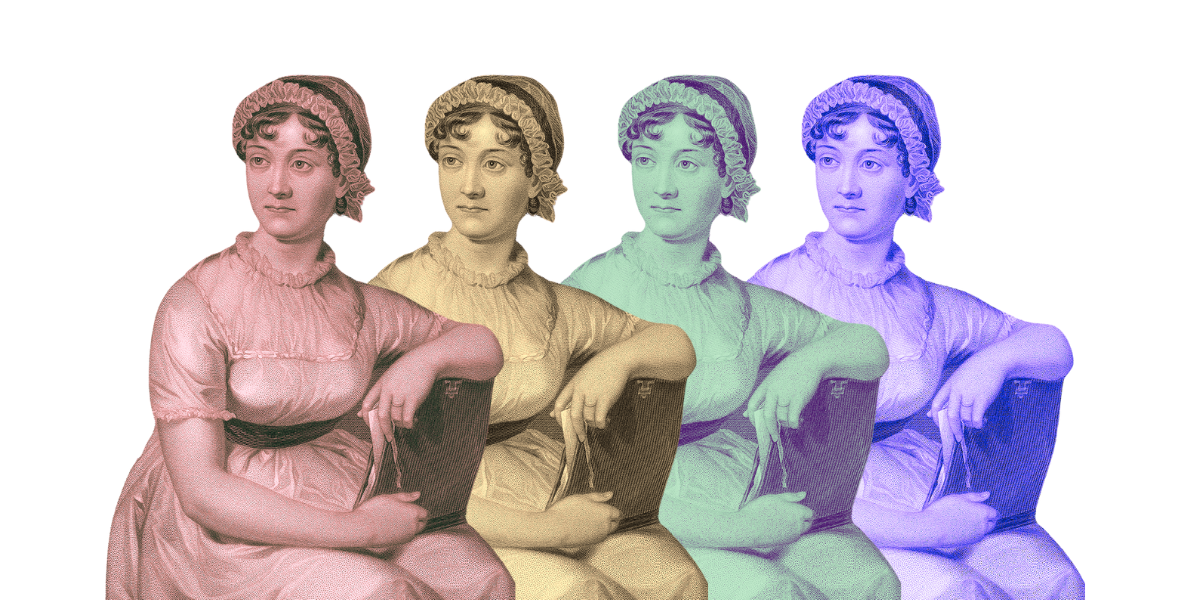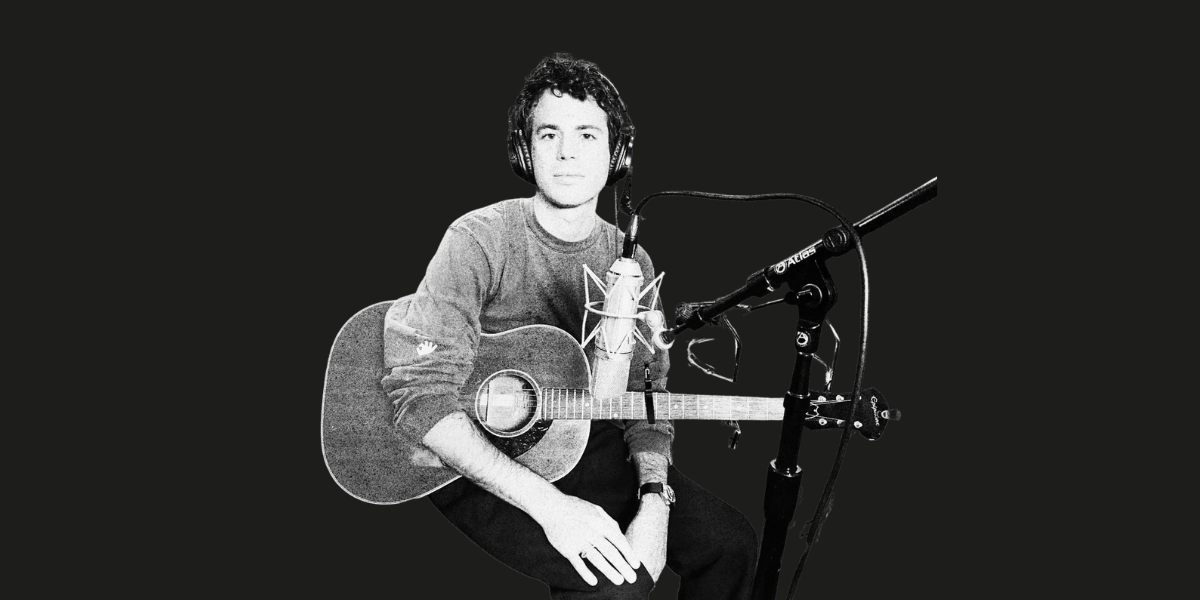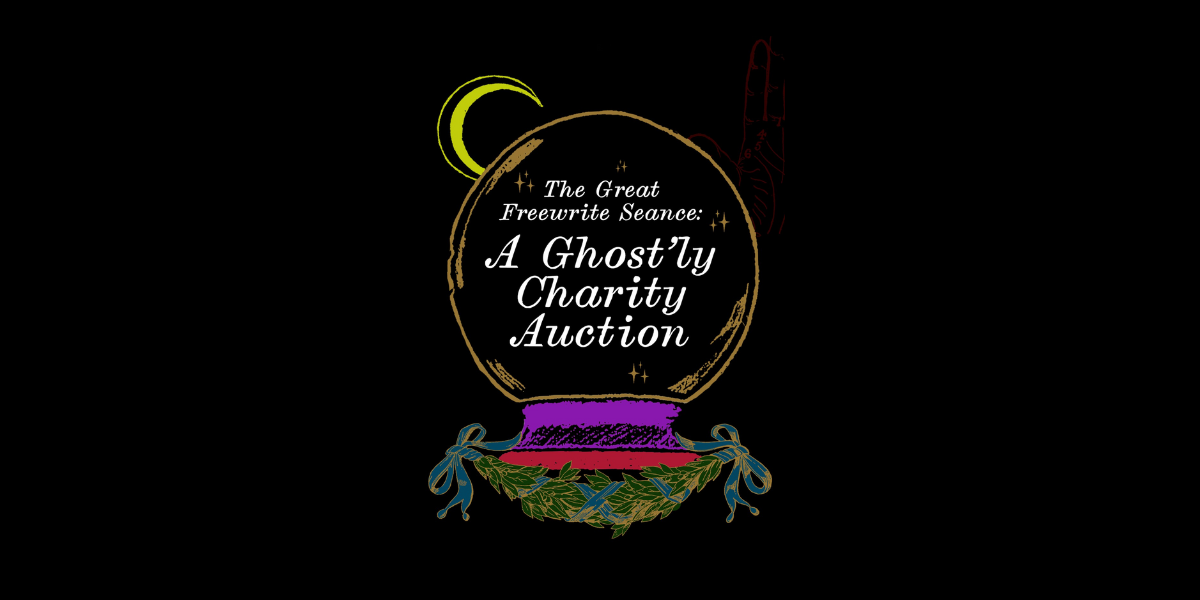When you read and write, do you visualize the scenes in your head, a bit like a movie? Or do you see nothing?
Join us in an exploration of aphantasia — or the inability to visualize — and the way different brains experience storytelling.

Author Mariel Pomeroy loved reading when she was younger. She remembers seeing Twilight and being astonished that you could create a whole fantasy world that other people fell in love with. Could she create something like that?
But she never tried, and somewhere through the years, she stopped reading.
“If I found a book that I really got into, it was my favorite thing,” she says. “But finding that was hard for me because of my lack of visuals. If I didn’t vibe very quickly with the prose or the characters, it was hard for me to stay — it just felt like school.”
Mariel is talking about aphantasia.
Aphantasia is a phenomenon in which people cannot visualize imagery. This is particularly apparent during storytelling, like reading and writing. It’s the only way Mariel’s mind has ever worked. In fact, she didn’t know other people “saw” things in their mind at all.
In 2020, when she picked up Jennifer L. Armentrout’s From Blood and Ash, Mariel remembered her old dream of writing. “I started to go for it,” she says. “Just writing.”
But what does “just writing” look like for someone with aphantasia?
ANNIE COSBY: So let’s start at the beginning. What does it mean that you have aphantasia?
MARIEL POMEROY: It means I can't “see” anything in my head. It’s just black up there. I can't visualize anything. I can't see the stuff I'm writing, or the stuff I read, either.
I don't have the mental imagery of books, you know, they're never like movies for me. I don't visualize how the body would move, or whatever, I can’t see it.
And people have different degrees of aphantasia too. I see nothing. But I was talking to one of my friends, and they can see colors and shapes and people, but the people don't have faces. Another friend sees so much, she can distinguish the texture of clothes.
It all just depends on your brain, which is fascinating.
It means I can't “see” anything in my head. It’s just black up there.
AC: I’ve seen the spectrum illustrated with that meme of an apple or the graphic of a bird.
MP: Yeah, those are useful tools to explain it.
AC: As a person who does see the “movie” of a story in my head, the visuals, I didn’t even know some people experienced reading and writing differently until very recently.
MP: I didn't know aphantasia was unusual until about two years ago, honestly. Even being in the social media space, I thought when people talked about “seeing” things in their head, it was metaphorical.
But for me, reading and writing are very much in-body experiences. I'm just reading the words, and I can kind of “hear” the words, but that’s it. I'm still very much just sitting here.
AC: Do you think aphantasia affects how you write?
MP: I think it’s harder for me to imagine a story. I tend to have one core idea, and from there it's all on vibes. Whatever feels good. It's not visual at all. It’s always a feeling.
It’s been the same with all my books. They were never approved for publishing until every chapter felt a certain way. My writing is very much based on emotions.
That means I sometimes bumble my way through the story. Often, I don't know where the book is going to end. I just start.
I'm going to find the ending as I write it. And as I find out more, as I go, the characters are telling me what's going to happen.
I think it’s harder for me to imagine a story. I tend to have one core idea, and from there it's all on vibes. Whatever feels good.
AC: That sounds like freewriting in the truest sense.
MP: Yeah. That’s truly what it is. I like to say i’s writing like I drive.
I'm a big driver. I love listening to music and just driving. It appeases my brain somehow. The destination is great and everything, but I prefer the journey of it.
That’s how writing is for me. I'll get to the destination eventually, but it may take me much longer than it was supposed to. And I enjoy it.
I have so many random chapters that will never go anywhere because I had to try out that direction just to see if that would feel better. Because all of the ideas technically worked on paper, but I didn’t know if it would feel right until I wrote it.
And so usually I write so many extra words just because I have to try different avenues and see what might work best.
It's kind of like slowly unfurling this ball of yarn.
It's kind of like slowly unfurling this ball of yarn.
AC: That's so interesting to me because I'm a dedicated plotter currently trying to explore other ways of writing.
MP: I've tried my hardest to plot, and I cannot. When I did, either immediately the storyline changed, or it didn't feel like I could be creative anymore. It felt really forced.
AC: For me, plotting feels good when I’m doing it, but when I finish the story, it’s like, well, that was predictable … because I predicted it. But when I force myself to freewrite, I'm like, where the heck did that idea come from?!
MP: Yeah! I don't want to get boxed in by structure. If I think about that too much while drafting, if I'm like, “OK, around this word count, I should be here,” that creativity just goes right out the window.
For first drafts, I can't focus on any of that. It's very much a task for revising.
AC: I mean, the point of structure at the end of the day is to make people feel something, right? And with your aphantasia, it seems like you're already going on feel.
MP: Sure. And sometimes I get it wrong. I think we've all heard this before, but draft one is you telling yourself the story. You've heard me speak now — my stories are long-winded. Oftentimes, I have to backtrack, and some things don't make sense, so I revise.
But that first draft should be full-on unhinged. It should be crazy!
I have first drafts where there's just parentheses that say “put emotions here” or “it’d be cool to do this scene right here.”
That first draft should be full-on unhinged. It should be crazy!
AC: I do that too!
MP: Because I couldn't think of something at the time but didn’t want to stop. Later, when I’m revising, it’s super helpful.
AC: I literally write, “Finish this later.”
MP: Every writer should figure out what to do when they get stuck. If you’re a plotter, you sort of know what direction you’re going, but if you’re not linear and you hit a wall, you’re completely lost.
My friend and I came up with a technique for getting out of that. We call it “writing a clown walking down the street.” What that means is writing something that makes absolutely no sense.
Something fully out of pocket, something that’s definitely not going in the book because it's just so random — like a clown walking down the street, with absolutely no reason for him to be there. There's no circus here. You don't know why there's a clown walking down the street, but he is.
Often, that kind of shock distracts your mind enough that it’s able to hurdle the block you were facing and you get a different idea. It’s like a cheat code to tap into the creative side of writing again.
Sometimes we forget about that! Writing is creativity. But there’s also so much of it that is analytical at the end of the day. A lot of it is numbers, like you're breaking down your word count and your structure at 50%, etc. I think when that takes over, it gets ahold of our creativity and drowns it a little bit.
We have to be kids about it to get it back. Write a clown walking down the street.
Sometimes we forget about that! Writing is creativity. But there’s also so much of it that is analytical ... I think when that takes over, it gets ahold of our creativity and drowns it a little bit. We have to be kids about it to get it back.

AC: So we’ve talked about how aphantasia affects your writing process, but do you think it affects your actual writing? Does it make your work different from other writers in a concrete way?
MP: That's a great question. I love poetry, so I try to make my chapters feel a little bit like poetry. I’m focused on the aesthetics of words and sentences.
I should add that I'm horrible at grammar. *laughs* But I do like the aesthetics of it all. Using melodic words, the sounds and the visuals of the words themselves. Prose is very, very important to me.
Also, I love descriptors, and I do think that comes from the blindness of it. But it also makes people surprised when they learn I can’t see anything in my head. They’re like “I could definitely see everything that you described really well.” But for me, I was just working.
AC: What’s your biggest piece of advice for other writers, whether they have aphantasia or not?
MP: Just trust yourself. At the end of the day, your mind — your brain — already knows what the story is.
Even if you don't, your brain does, and it's feeding it to you in bite-sized pieces.
So even if you feel like you're in this dark tunnel just tapping around, it is a tunnel. There is an exit, and you'll get there. You just have to trust that whatever ideas come to you, there’s a reason for them.
You just have to lean into that.
Which I think has been the hardest thing. It's easy for me to tell you, you know, trust yourself, but even when I’m trusting the process, I'm like, “What are we doing? I don't understand what's going on. I have no idea where I’m going with this. Why can’t it just be linear?”
The simple answer is that's not how my brain works. It just wants to feed it to me differently.
At the end of the day, your mind — your brain — already knows what the story is. Even if you don't, your brain does, and it's feeding it to you in bite-sized pieces.
AC: That’s really wise. I think we often try to follow writing process advice from writers we admire, with good intentions, but everybody’s brain is different.
MP: Absolutely. So the question is: What kind of storyteller are you?
If you're telling your friends a story, do you get sidetracked? Do you lose the plot for a second and go on a tangent and talk about something else completely? Because in the first draft, that's what you're doing. You're telling yourself this story.
So the question is: What kind of storyteller are you?
Take our quiz to find out what kind of storyteller you are.
Follow Mariel on social media to learn more about her books, writing with aphantasia, and her unique writing journey.



























